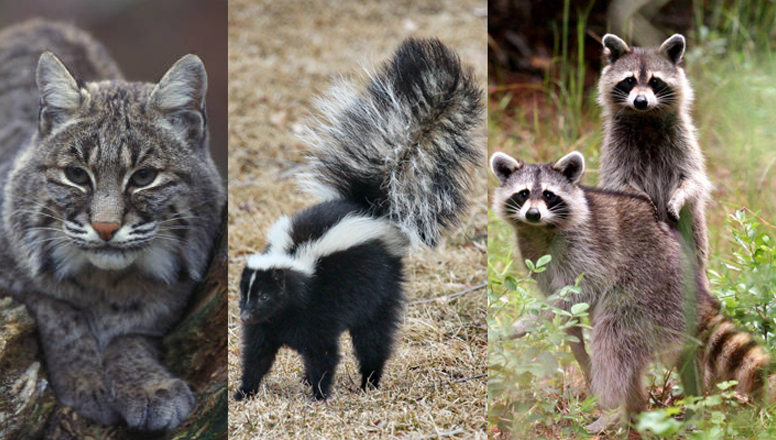Colorado Parks and Wildlife has identified several cases of highly pathogenic avian influenza (HPAI) in free-ranging wildlife in Colorado.
A black bear from Huerfano County was affected by the disease in October, a skunk from Weld County was found to be positive for the disease in November, and a mountain lion that died in Gunnison County was recently confirmed to have the disease. Testing was conducted by Colorado State University in Fort Collins and the National Veterinary Services Laboratory in Ames, Iowa.
HPAI has already killed thousands of wild birds in the U.S., including in Colorado. This strain of HPAI was first confirmed in wild geese in Northeast Colorado in March of 2022.
All three of the confirmed cases showed signs of HPAI before or after death including neurologic symptoms such as seizures or circling, general signs of illness such as weakness or lack of responsiveness to human presence, and organ damage including encephalitis, hepatitis, and pneumonia. Other similar suspected mammalian cases have been detected in the state, with confirmatory testing pending.
The Huerfano County black bear was euthanized Oct. 8, 2022, by a CPW wildlife officer after he saw it having seizures. Its remains were frozen until it could be transported to the health lab for testing. A necropsy revealed the bear had signs of HPAI, prompting CPW to test for HPAI. Later in October, a black bear in Alaska tested positive for HPAI.
“The decision to humanely euthanize the animal by our wildlife officer was made following the abnormal behavior and knowledge that numerous infectious diseases cause neurological symptoms,” said CPW Area Wildlife Manager Mike Brown. “Extremely ill animals have difficulty moving and often act abnormally. While clinical signs of numerous diseases may be observed, diagnostic laboratory testing and necropsy services help determine the actual cause of death.”
The Gunnison County mountain lion was found dead just outside of Gunnison city limits on Jan. 15, 2023, in an area where mountain lion activity is commonplace. The mountain lion had necrosis in the liver and bronchointerstitial pneumonia, which have been seen in domestic cats with HPAI, so this also warranted HPAI testing.
“Similar to many local species, mountain lions move through our communities on a regular basis as they travel between seasonal ranges throughout the year,” said CPW Area Wildlife Manager Brandon Diamond. “It was only a matter of time before the first HPAI case was confirmed in Gunnison County based on known cases in adjacent counties. While this is an interesting case study with the lion, it’s important to point out that HPAI has been documented previously in a variety of mammals from across the country. In Gunnison County, CPW routinely investigates reports of sick and injured wildlife and is always interested in hearing from the public if they encounter something that doesn’t look quite right.”
A number of mammalian wildlife species have been affected with the current strain of HPAI in the U.S. including skunks, foxes, black bears, bobcats, coyotes and raccoons among several others. It has even been detected in marine mammals. These mammals likely become infected by feeding on wild birds that are sick or have died of HPAI; however, not every mammal that consumes a sick bird will develop HPAI. These recent Colorado cases add to a growing list of affected wildlife species.
Despite the variety of mammalian species susceptible to HPAI, the numbers of mammal cases are currently low. The majority of cases confirmed during this HPAI outbreak are in wild and domestic birds. The most commonly affected wild birds in Colorado have been geese, as well as the raptors and other scavenging birds that eat goose carcasses.
CPW continues to stress the importance of keeping your distance from wildlife, and specifically not handling sick or dead birds. Although rare, some HPAI strains can infect people.
See the CDC website for more information on protective actions.




